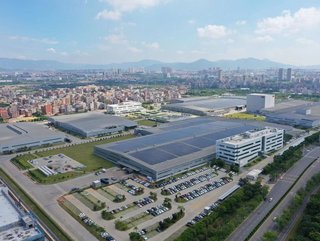Future of low carbon manufacturing showcased at ABB

ABB's production facility in Xiamen is leading the way towards a sustainable manufacturing future in China, with its innovative approach to energy management. By combining new energy monitoring systems with on-site renewable energy generation and storage, the facility has achieved significant reductions in emissions and costs, making it a flagship site for sustainable manufacturing.
Given that China's manufacturing sector is a significant contributor to global emissions, interventions like those at ABB's Xiamen site are essential to help the country achieve its net zero energy transition goals. The Xiamen facility has reduced its CO2 equivalent emissions by 13,400 tons as part of ABB's global Mission to Zero programme, and will be showcasing its smart digital technology to other manufacturers in China to help them achieve similar results.
The facility has installed 100,000m2 of rooftop solar panels, which generate enough solar energy to cover around 50% of the site's annual electricity consumption, and a smart energy management system optimizes the system and balances supply and demand. The complex energy system is controlled by ABB Ability™ Electrification Monitoring and Control for distribution networks, ZEE600, which monitors and manages loads, battery storage, and EV charging. The Xiamen facility's power system also interacts with State Grid Corporation of China's electricity grid to provide demand-side response services when required.
James Zhao, senior vice president of ABB China said: “The scale and pace of our Xiamen carbon reduction journey is our most powerful example of how manufacturers of any size can create low carbon production sites – and quickly. By implementing ABB technology that is widely available, we are showing how to accelerate the journey to decarbonisation. Our world-class demonstration site will show our customers and partners how low carbon ambitions can be achieved today through intelligent technology.”






